The Power of Family in Addiction and Mental Health Recovery
Substance use disorders and mental health issues often intertwine, creating complex challenges that require comprehensive treatment approaches. Involving family members in behavioral treatment plans has emerged as a vital component in fostering recovery, improving treatment adherence, and promoting long-term well-being. This article explores the significance of family engagement, effective strategies for involvement, and best practices tailored to diverse family dynamics, all grounded in evidence-based interventions and research.
Why Integrating Family into Treatment Matters
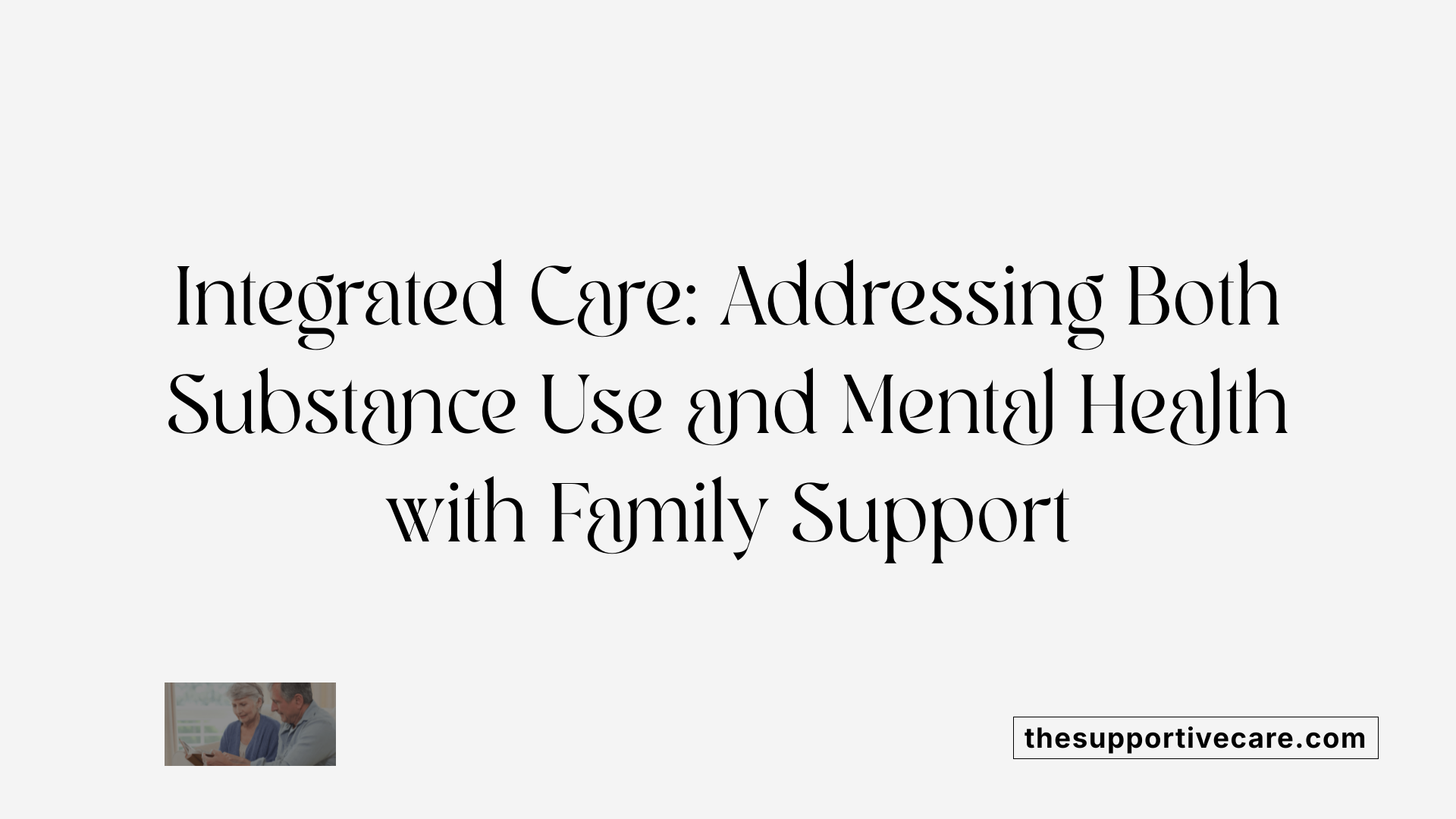
Importance of family support in recovery
Family support plays a crucial role in helping individuals with substance use disorders initiate and maintain recovery. Families provide emotional encouragement, improve motivation, and offer a social foundation that promotes long-term abstinence. Positive family involvement is linked to reduced relapse risk and enhanced well-being across the recovery journey.
Impact on treatment engagement and retention
Incorporating family members into treatment significantly boosts client engagement and retention. Research shows that individuals supported by concerned family and significant others are more likely to stay in treatment and complete their recovery programs. Strategies such as family psychoeducation and behavioral contracting strengthen communication and accountability, helping clients remain committed to recovery goals.
Evidence of improved outcomes with family involvement
Clinical trials involving over 2,000 participants confirm that treatments integrating significant others lead to better substance use outcomes compared to individual therapy alone. These approaches, including Multidimensional Family Therapy and Behavioral Couples Therapy, reduce substance use by approximately 6%, with benefits lasting up to 18 months post-treatment. Family-based interventions not only improve substance misuse outcomes but also enhance relationship quality and social support networks.
Why is it important to provide integrated care for substance abuse and mental health issues?
Nearly half of people with substance use disorders also experience mental health conditions concurrently. Integrated care addresses both areas in a unified approach, improving treatment effectiveness and reducing relapse. Incorporating family support within this integrated care leverages social and emotional resources, thereby improving engagement, retention, and overall treatment success.
Common Addictions Addressed Through Family-Inclusive Programs
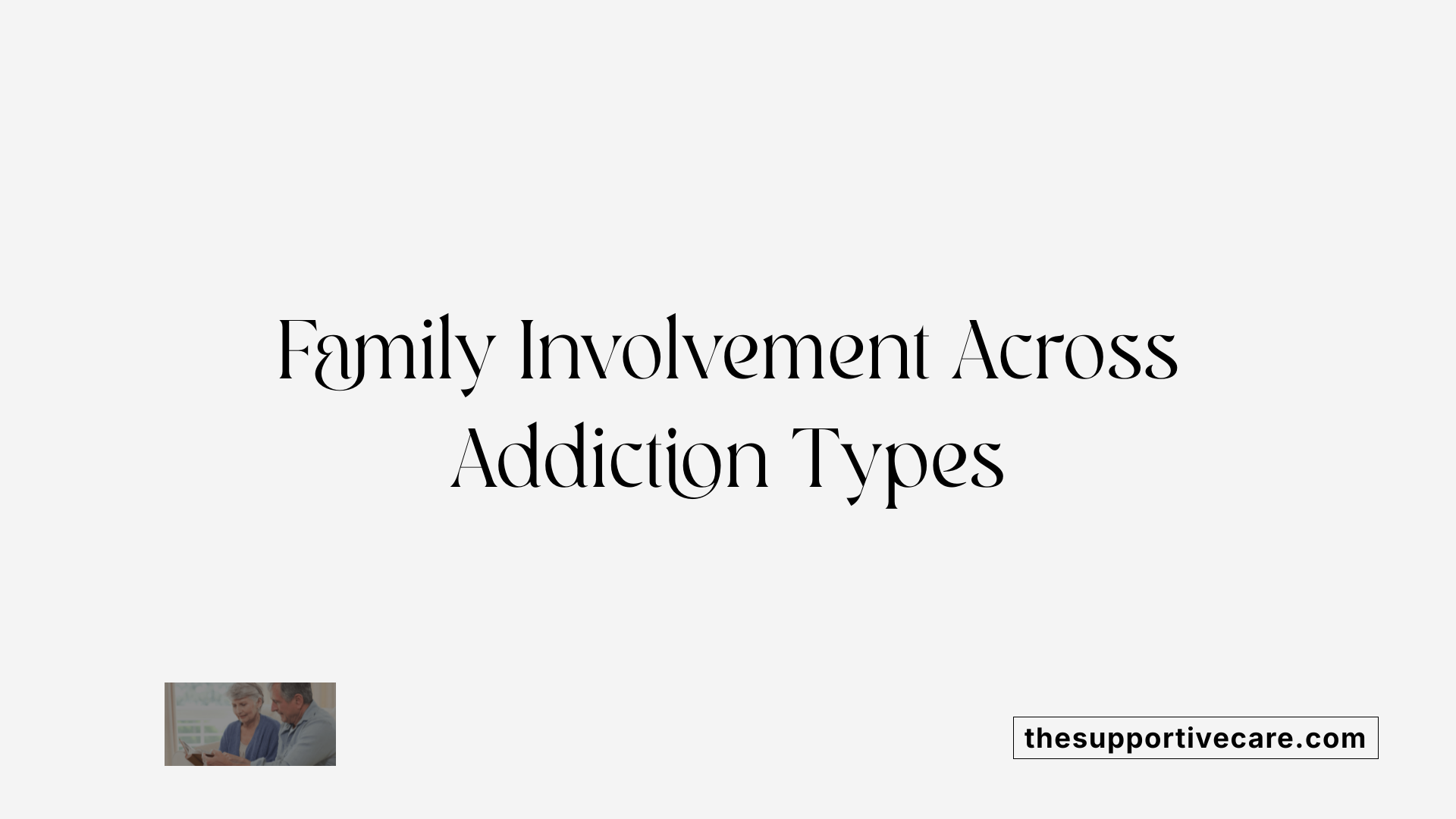
What are the common types of addiction treated in comprehensive substance abuse programs?
Common addiction types treated in comprehensive substance abuse programs include alcohol dependency, opioid and stimulant drug addictions, and behavioral addictions such as gambling and gaming. These programs recognize the diverse nature of substance use disorders and behavioral addictions, making family involvement a fundamental aspect to improve treatment outcomes.
Role of families across addiction types
Families play a crucial role regardless of addiction type by creating a supportive environment that encourages treatment adherence and recovery. Through family therapy and psychoeducation, families learn about the nature of addiction, effective coping strategies, and communication skills. This involvement helps reduce relapse risk and supports sustained abstinence by fostering motivation and enhancing social support.
Tailoring interventions for specific addictions
Interventions are tailored to address the particular dynamics of different addictions. For instance, opioid addiction treatment may emphasize relapse prevention and medication-assisted treatment integration while involving family members in monitoring and support. Behavioral addictions might focus more on managing triggers and improving family communication. Across all types, family-based therapeutic models like Multidimensional Family Therapy and Behavioral Couples Therapy adapt to the individual and family needs, ensuring intervention relevance and effectiveness.
Core Components of Family-Based Addiction Treatment
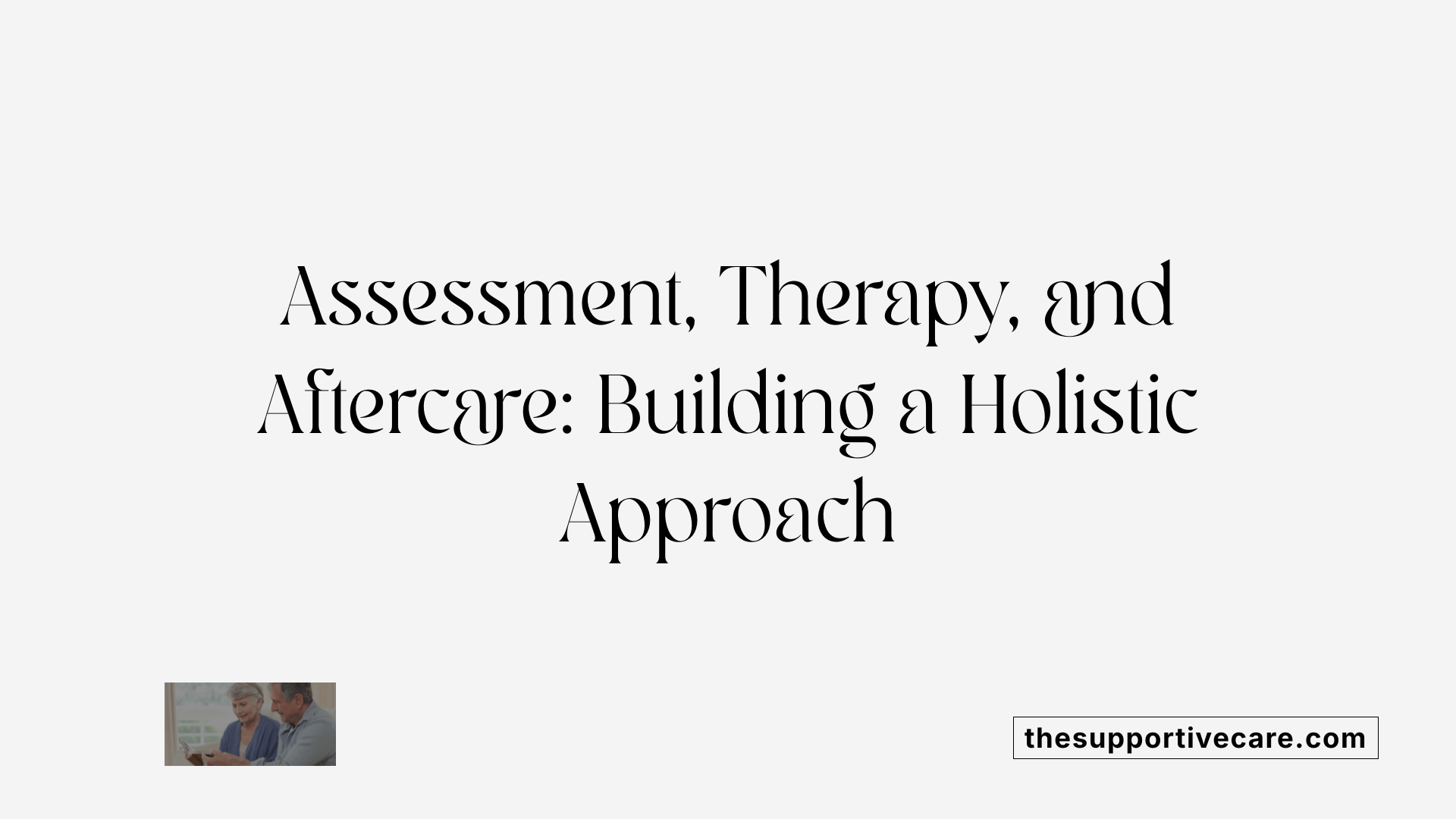
Assessment and Individualized Care
A foundational element of family-based addiction treatment is a comprehensive assessment process. This includes evaluating the individual's substance use history, co-occurring mental health issues, and social and family dynamics. Understanding the client's family situation, including any history of domestic violence or abuse, helps tailor treatment plans safely and effectively. Providers also consider diverse family structures—such as blended families, same-sex families, and military families—and define 'family' according to client preferences.
Evidence-Based Therapies Involving Family
Several proven family therapy models are central to effective addiction treatment. Multidimensional Family Therapy (MDFT), Functional Family Therapy, Behavioral Couples Therapy, and Community Reinforcement Approaches emphasize improving communication, strengthening family support, and motivating change. These approaches have demonstrated efficacy in reducing substance misuse among both youth and adults. Psychoeducation forms a foundational intervention, providing families with knowledge about addiction and recovery to enhance treatment outcomes.
Relapse Prevention and Aftercare Planning
Family involvement supports relapse prevention by improving recognition of relapse warning signs and fostering supportive environments. Interventions like behavioral contracting and communication skill-building help families contribute positively to sustained recovery. Linking families to community supports such as Al-Anon and family recovery groups also ensures ongoing assistance beyond formal treatment. Integrating family participation throughout intake, treatment, and recovery planning contributes to long-term success.
Multidisciplinary Staff Roles
Effective family-inclusive treatment relies on collaborative multidisciplinary teams, including therapists, counselors, case managers, and medical professionals. These teams conduct thorough assessments, deliver tailored family-based therapies, coordinate psychoeducation, and manage relapse prevention planning. Their holistic approach addresses individual needs while leveraging family strengths and resources to support recovery comprehensively.
| Component | Description | Benefit |
|---|---|---|
| Assessment and Individualized Care | Evaluation of substance use, mental health, family structure, and safety considerations | Ensures safe, tailored treatment plans |
| Evidence-Based Family Therapies | Use of MDFT, Behavioral Couples Therapy, psychoeducation, and community resources | Promotes communication, motivation, and strong family support |
| Relapse Prevention & Aftercare | Behavioral contracting, skills training, referral to mutual support groups | Reduces relapse risk and supports long-term recovery |
| Multidisciplinary Team | Collaboration among therapists, counselors, medical staff, and case managers | Provides holistic and continuous care |
Addressing Co-occurring Mental Health Disorders with Family Engagement

How do comprehensive treatment services address co-occurring mental health disorders alongside substance abuse?
Comprehensive treatment for individuals facing both substance use disorders (SUDs) and mental health conditions involves integrated approaches that tackle both issues simultaneously. Behavioral therapies such as cognitive-behavioral therapy (CBT) and dialectical behavior therapy (DBT) are commonly employed to address the overlap of symptoms, helping clients develop skills to manage cravings and psychiatric distress together.
Family engagement plays an essential role in this integrated treatment. Families help motivate individuals to adhere to medication regimens and attend therapy sessions, fostering consistent participation in care. They also enhance early detection of relapse warning signs by observing behavioral changes, allowing for timely intervention.
Furthermore, family-based interventions strengthen social support, which is critical for sustaining long-term recovery and reducing the risk of both psychiatric and substance use relapse. By improving communication and creating a supportive home environment, families contribute to better mental health management alongside substance abuse treatment.
Integrated treatment models that incorporate family participation have demonstrated improved outcomes by addressing the complex needs of clients with co-occurring disorders in a holistic and coordinated manner.
Family Therapy Models and Their Efficacy in Addiction Recovery
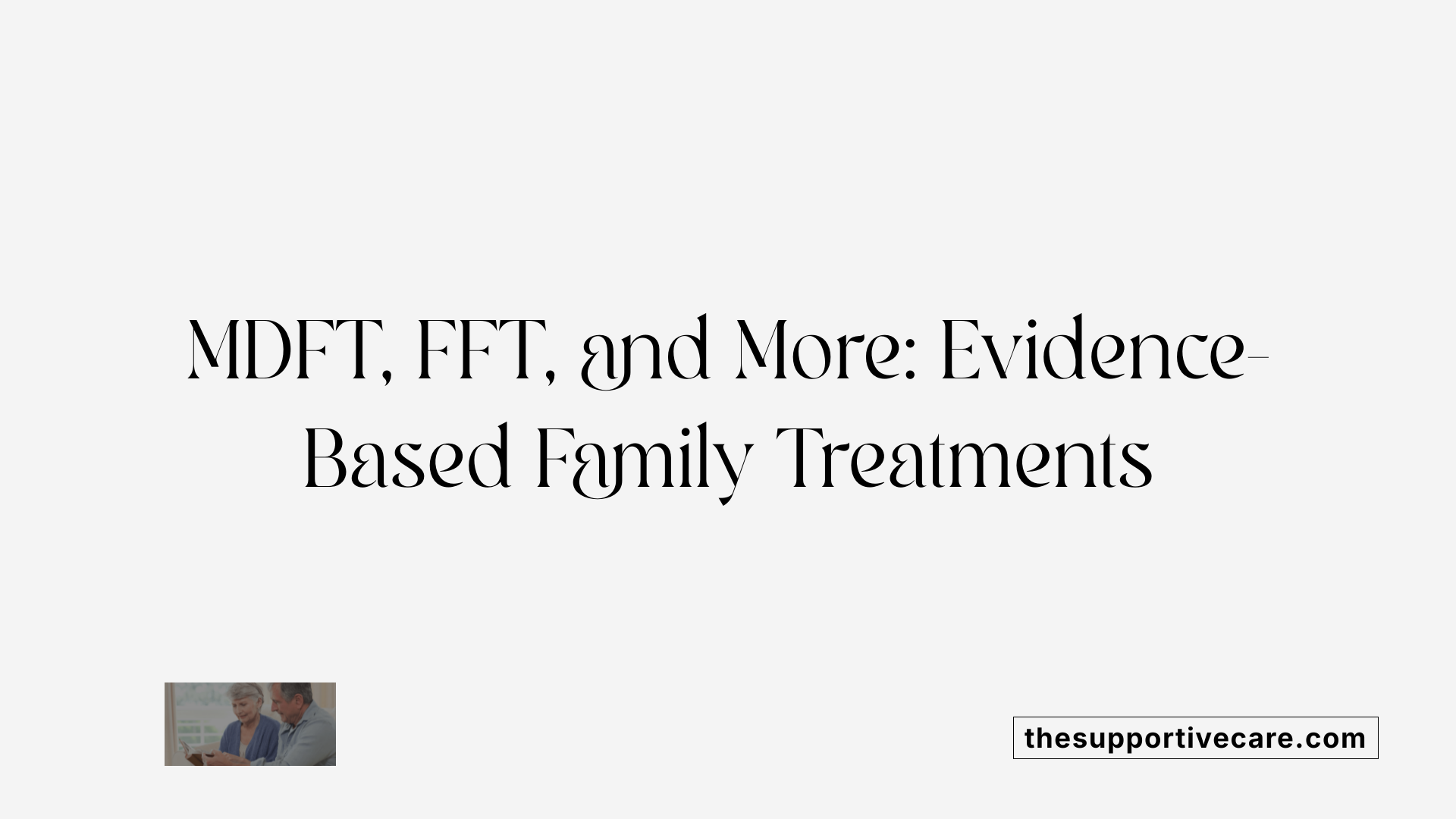
Multidimensional Family Therapy (MDFT)
MDFT is a comprehensive family therapy model designed specifically for adolescents with substance use disorders. It addresses multiple factors influencing substance misuse by engaging not only the youth but also their family members and social environments. MDFT works to improve family communication and relationships while targeting behaviors that contribute to addiction. Research demonstrates MDFT's effectiveness in reducing youth substance misuse and supporting sustained recovery.
Functional Family Therapy (FFT)
FFT emphasizes changing family dynamics and interactions that may contribute to substance use. This therapy works on strengthening family communication, problem-solving skills, and relationship building to reduce problem behaviors. FFT has been shown to lower substance misuse rates in both youth and adult populations by improving family functioning and support.
Behavioral Couples and Family Counseling
This approach focuses on involving romantic partners and family members in therapy sessions to enhance recovery outcomes. Behavioral Couples Therapy, a well-known subtype, helps couples improve communication, resolve conflicts, and establish behavioral contracts that support sobriety. Such models have demonstrated reductions in substance misuse and improvements in relationship satisfaction and treatment retention.
Community Reinforcement Approaches and Other Models
Community Reinforcement Approaches incorporate family support alongside behavioral and social reinforcement to encourage recovery. These interventions often link families to community resources such as support groups (e.g., Al-Anon) and provide education on addiction and coping strategies. They complement other family therapy models by addressing environmental and social factors related to substance use.
Collectively, these family therapy models share core strategies: bolstering family communication, enhancing support systems, involving family members actively in treatment, and addressing behaviors sustaining addiction. Their combined use provides a diverse, culturally sensitive framework for improving engagement, retention, and long-term recovery outcomes for individuals with substance use disorders.
Psychoeducation: Empowering Families with Knowledge
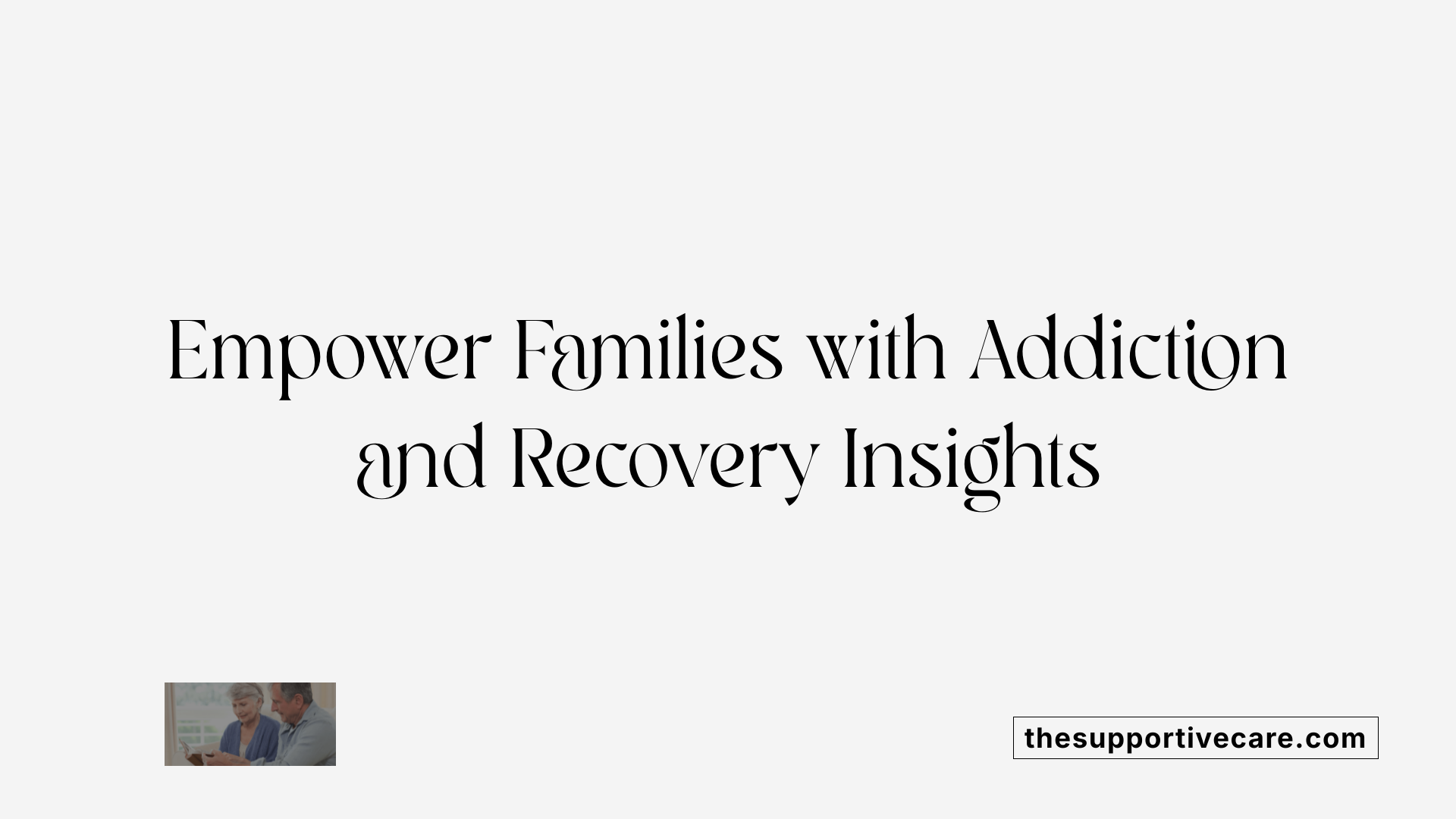
What is Psychoeducation in Family-Based Treatment?
Psychoeducation is a foundational intervention in family-based treatments for substance use disorders (SUDs). It involves providing families with clear, accurate information about addiction, the recovery process, and effective coping strategies. By enhancing families' understanding, psychoeducation empowers them to actively support their loved ones in recovery.
Education About Addiction and Recovery Processes
Families learn about the nature of addiction, its effects on the individual and the family system, and the stages of recovery. This knowledge helps reduce stigma and misconceptions, allowing families to respond with empathy rather than judgment. Understanding relapses and warning signs also prepares families to participate effectively in relapse prevention.
Coping Strategies for Family Members
Beyond knowledge, psychoeducation equips families with practical coping skills. These include managing stress, improving communication, setting healthy boundaries, and supporting behavioral changes without enabling substance use. This support enhances emotional resilience and helps families maintain a positive environment conducive to recovery.
Enhancement of Treatment Outcomes Through Informed Families
Research demonstrates that families informed through psychoeducation contribute significantly to treatment success. Involved families show better engagement in treatment processes, strengthen motivation for the person in recovery, and improve retention rates. Ultimately, psychoeducation fosters an environment that sustains long-term recovery and promotes family well-being.
Practical Strategies to Involve Family Members Effectively

Behavioral Contracting
Behavioral contracting is a powerful tool used in family-based treatment to establish clear expectations and responsibilities among family members and the client. This intervention sets specific, measurable goals linked to recovery behaviors, fostering accountability within the family system. By agreeing on these contracts, family members actively support the client’s recovery journey and reinforce positive changes.
Improving Communication Skills
Improving family communication forms a core component of family therapy. Enhancing communication skills helps family members express support, address conflicts constructively, and understand addiction's impact. Strategies include teaching active listening, expressing emotions respectfully, and developing problem-solving skills. Strengthened communication pathways encourage healthier interactions and promote a supportive environment conducive to recovery.
Connecting Families with Community Support Groups Like Al-Anon
Linking families to community recovery supports, such as Al-Anon, offers extended peer support and education. These groups provide families with coping strategies, emotional understanding, and addiction education from those who share similar experiences. Such connections reduce isolation, combat stigma, and create a network of ongoing support that complements formal treatment efforts.
Managing Logistical and Stigma-Related Barriers
Family involvement may be hindered by challenges like geographic distance, scheduling conflicts, disruptive behaviors, and stigma. Employing strategies such as teleconferencing can overcome geographic constraints and scheduling issues, making participation more accessible. Addressing stigma through sensitive communication and education reduces embarrassment and fears that families might have, facilitating open involvement. Tailoring approaches with cultural competence further enhances engagement by respecting diverse family norms and experiences.
These strategies collectively contribute to increasing family engagement in substance use disorder treatment. By focusing on clear expectations, effective communication, community connections, and flexible, stigma-aware approaches, treatment providers can bolster family participation and improve outcomes.
Assessing Family Readiness and Screening for Contraindications
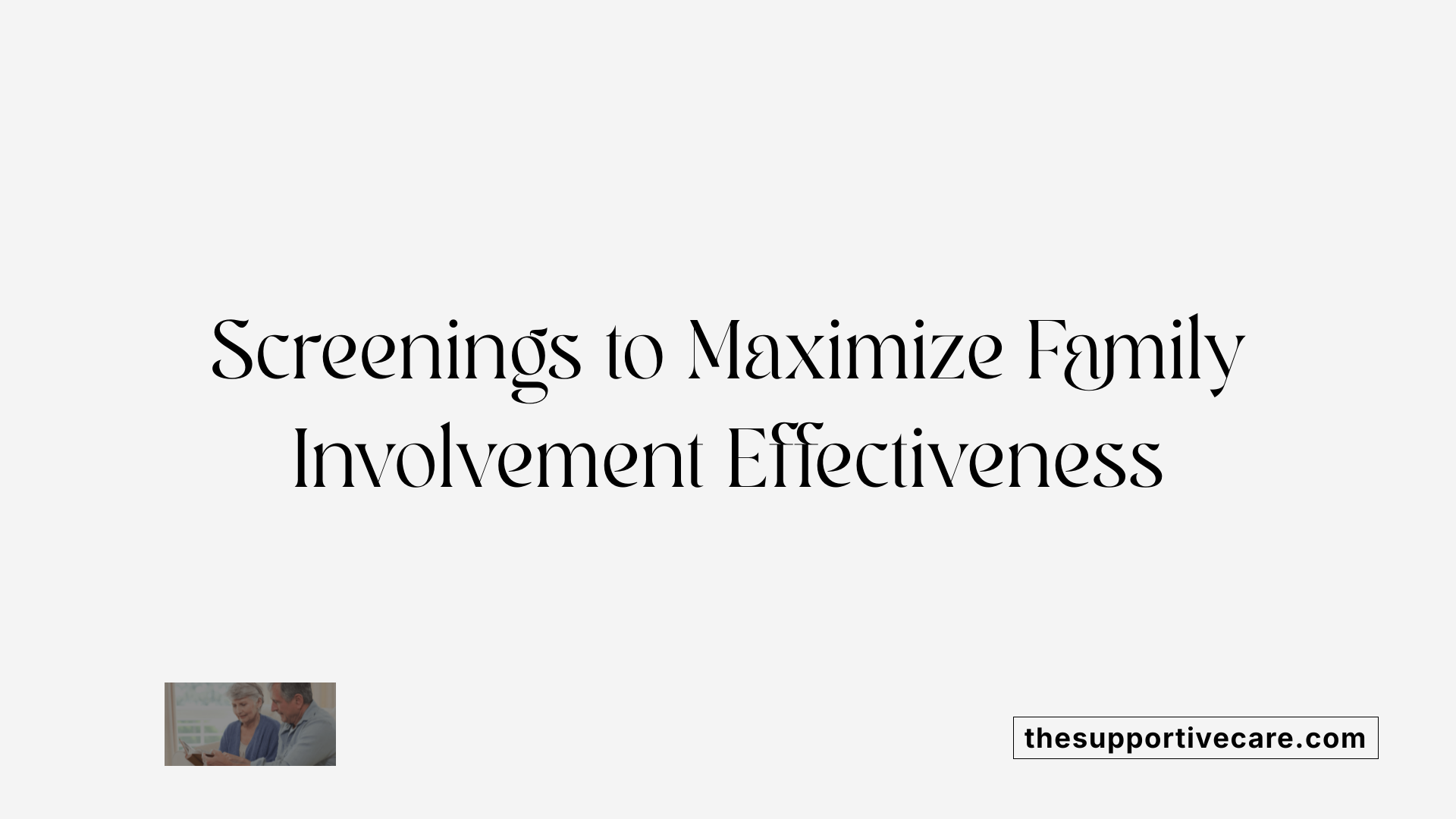
Screening for Domestic Violence and Abuse
Before involving family members in substance use disorder (SUD) treatment, it is vital to assess for domestic violence and abuse. Screening helps ensure that participation will not expose the client or family members to harm. If such issues are present, family involvement may be contraindicated to protect all parties and maintain treatment safety.
Assessing Family Members’ Substance Use and Mental Health
Evaluating family members’ own substance use status and mental health conditions is another critical step. Active addiction or severe mental health challenges within the family may impact their ability to provide positive support. Understanding these factors helps tailor the level and type of family involvement or suggests alternative support systems.
Determining Appropriateness of Family Involvement
A comprehensive assessment should include family history, interactions, and strengths related to the client's recovery. Providers must consider co-occurring disorders, legal issues, or histories of violence when deciding on family inclusion. Screening ensures that family participation will enhance, rather than hinder, treatment engagement and success, promoting a safe and effective recovery environment.
Cultural Competence and Tailoring Family Involvement
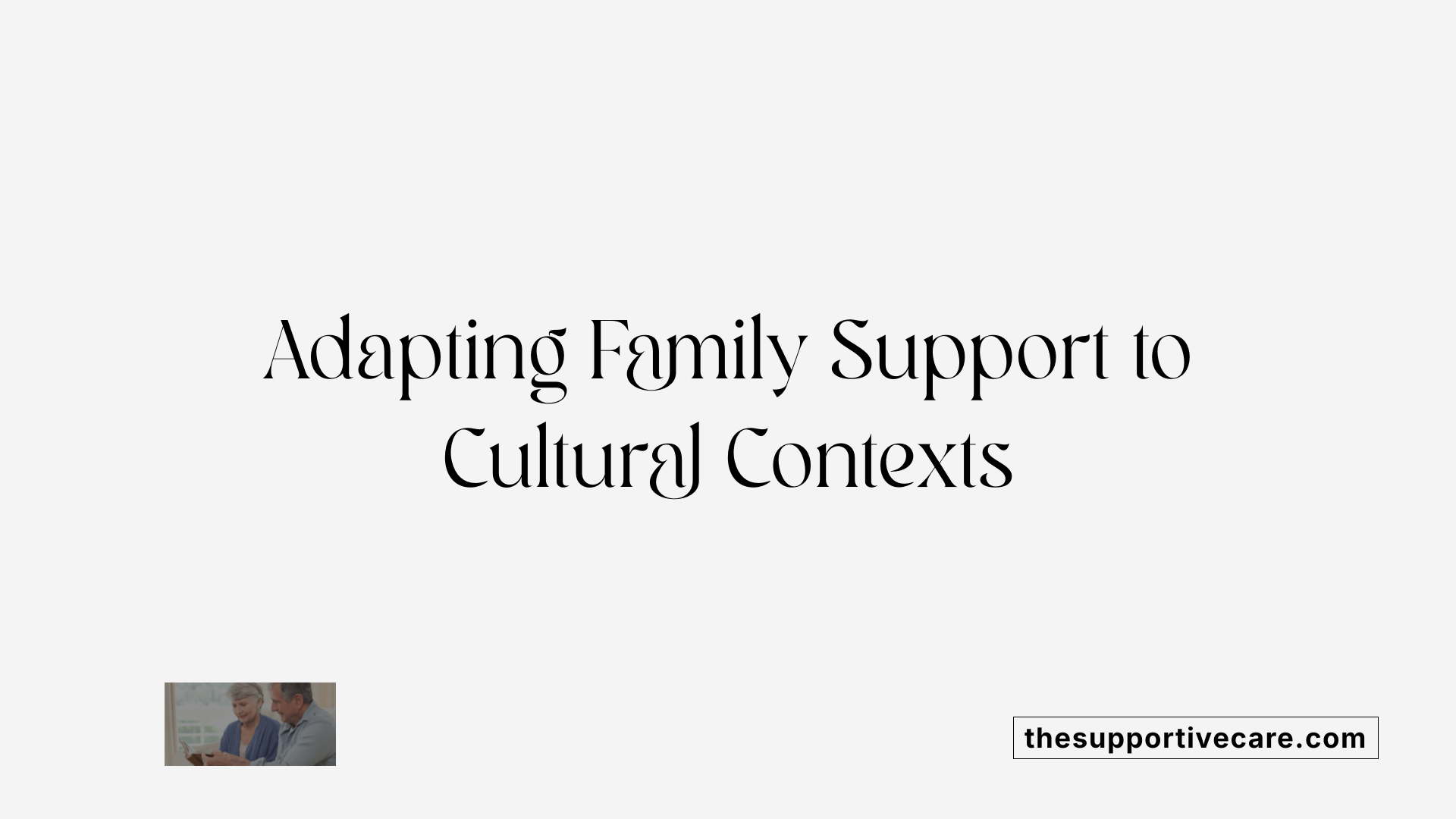
Recognizing Diverse Family Structures and Cultural Backgrounds
Effective family involvement in substance use disorder (SUD) treatment requires acknowledging the varied family compositions clients live with. Families may include blended families, same-sex parents, military families, extended relatives, or other configurations, and 'family' should be defined according to each client’s preference. Providers must be sensitive to these differences to build trust and foster engagement in treatment. Tailoring approaches ensures that interventions resonate culturally and structurally with the families involved.
Incorporating Religious and Spiritual Influences
Religious and spiritual beliefs often play a pivotal role in how families understand and cope with addiction and recovery. Integrating these influences within family-based interventions can improve acceptance and adherence to treatment. Providers should explore these aspects respectfully and include faith-based practices or community supports where appropriate, aligning treatment with the family's values and traditions.
Addressing Stigma and Discrimination Within Families
Stigma related to substance use can be a major barrier to family involvement. Discrimination and cultural taboos may cause denial, secrecy, or reluctance to seek help. To combat this, providers should cultivate open, nonjudgmental dialogue with families, provide education to reduce misconceptions, and connect families to resources that address stigma sensitively. Cultural competence involves recognizing these challenges and adapting interventions to help families overcome shame and support positive change.
Employing cultural competence in family therapy strengthens therapeutic alliances and enhances the overall effectiveness of SUD treatment by making it more inclusive and relevant to diverse family realities.
Enhancing Family Engagement Through Outreach and Collaborative Partnerships
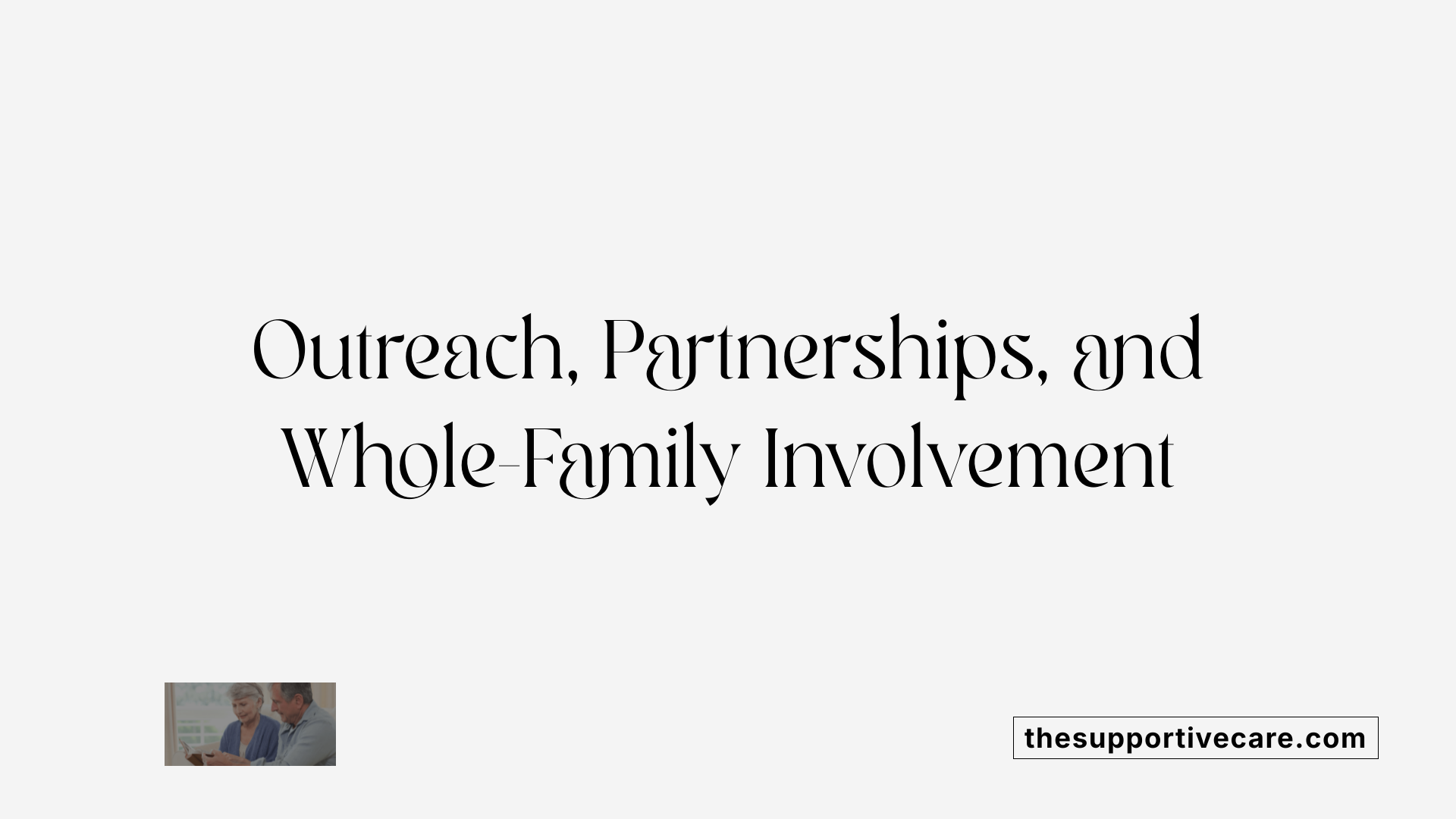
Modifying Attitudes and Perceptions Towards Treatment
Family engagement in substance use disorder (SUD) treatment can be improved by addressing common barriers such as stigma, misconceptions, and lack of information. Educational outreach efforts help families understand the recovery process, importance of treatment, and benefits of their involvement. These efforts not only demystify SUD but also foster more positive views of treatment, encouraging families to become active participants.
Building Parent-Professional Partnerships
Creating collaborative partnerships between families and treatment professionals is vital for successful recovery, especially for adolescents. These partnerships establish trust and mutual respect, enabling open communication about treatment goals and family concerns. When families feel valued as partners, they are more likely to support clients consistently and help sustain recovery gains beyond treatment.
Integrating Family Participation Into Intake and Recovery Processes
Family involvement should be systematically integrated throughout the treatment continuum, beginning with the intake process. Early engagement allows providers to assess family dynamics, offer psychoeducation, and develop tailored strategies to involve family members effectively. Continuing family participation during treatment planning and recovery phases strengthens support networks, improving client retention and long-term outcomes.
By combining outreach to modify perceptions, fostering collaborative partnerships, and embedding family involvement at all stages, treatment programs can enhance family engagement and contribute to more successful recovery journeys.
Long-Term Benefits of Sustained Family Involvement in Recovery
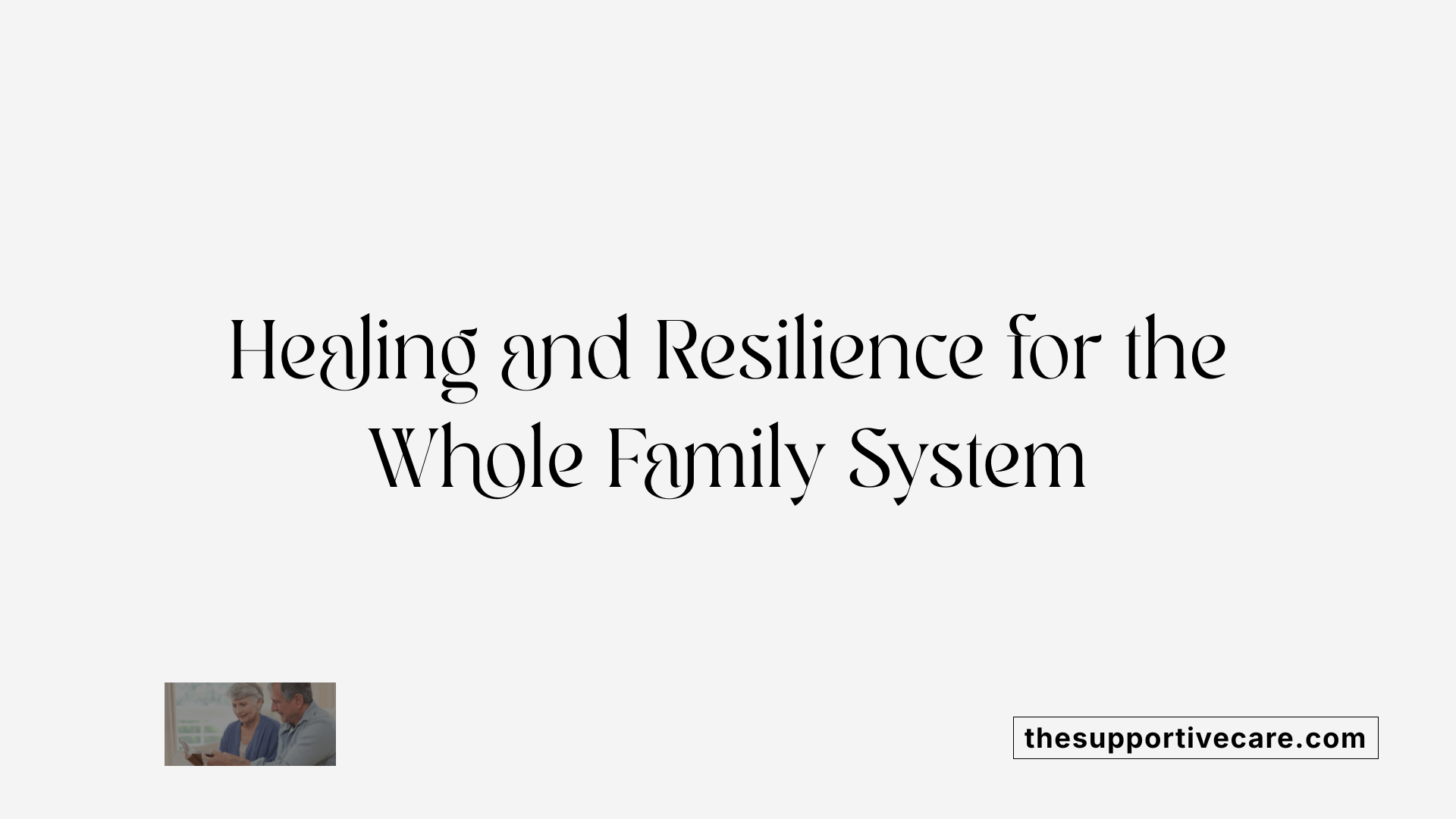
Supporting relapse prevention and ongoing recovery
Sustained family involvement plays a crucial role in relapse prevention and supporting ongoing recovery for individuals with substance use disorders (SUDs). Family members who engage in psychoeducation, mutual support, and relapse prevention strategies provide essential vigilance and encouragement, which help clients recognize early warning signs of relapse. Behavioral contracting and improved communication skills within families reinforce healthy behaviors, reduce stressors, and promote accountability, lowering the risk of relapse over time.
Families as champions of resilience and hope
Families act as pillars of hope and resilience throughout the recovery journey. When family members remain involved, they offer continuous emotional support, understanding, and patience which foster a nurturing environment essential for long-term sobriety. By serving as champions of recovery, families motivate clients to stay engaged in treatment and embrace change. Importantly, families also help prevent intergenerational substance misuse by addressing behaviors that contribute to SUDs and fostering healthier relational dynamics.
Improving mental health and well-being for the entire family system
Recovery from substance misuse is a holistic process that benefits not only the individual but their entire family system. Family therapy helps the whole family heal, promoting open communication, healthy boundaries, and positive coping strategies. Education about addiction and recovery empowers families with knowledge, reducing stigma and stress. This collective approach improves mental health and well-being for all members, supports individual strengths, and enhances the family’s resilience against future challenges.
Harnessing Family Strengths for Lasting Recovery
Involving family members in behavioral treatment plans is not just beneficial but essential for successful recovery from substance use and co-occurring mental health disorders. Family engagement improves treatment adherence, enriches communication, and strengthens social support systems, all of which contribute to reducing relapse risks and fostering sustained sobriety. Tailoring interventions to respect individual family dynamics, cultural backgrounds, and potential contraindications ensures treatment is both effective and compassionate. As families become educated, empowered, and integrated partners in care, they serve as pillars of hope, resilience, and healing that extend beyond the individual to the entire family system. Embracing family involvement transforms recovery into a collaborative journey grounded in understanding, connection, and long-term well-being.
References
- Chapter 3—Family Counseling Approaches - NCBI - NIH
- Family Therapy for Substance Use Disorders and Addiction ...
- THE IMPORTANCE OF FAMILY THERAPY Advisory 39
- Family involvement in adolescent substance abuse ...
- Retention Toolkit: Family Involvement
- Family's Role in Recovery
- Involving family members in substance use disorder ...
- The Benefits of Integrated Care for Co-Occurring Disorders
- Understanding integrated behavioral health care and the ...


































































































